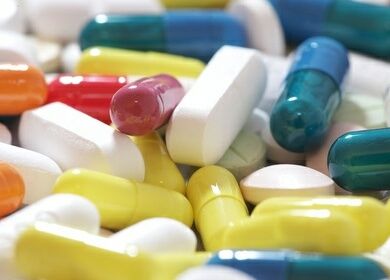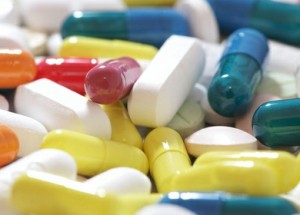
The health issues that can stem from high cholesterol are no joke. Fearing the risk of heart disease, stroke and other related issues, many people choose prescription cholesterol medications known as statins to keep their ‘bad’ LDL cholesterol levels low.
However, more and more studies are revealing how truly detrimental these drugs can be. Luckily, in non-emergency situations, there are a number of healthy ways to naturally lower your cholesterol and improve your overall health.
Risks of Using Statins
Physicians across the United States, and around the world, commonly prescribe a potent class of drugs known as statins to lower LDL (low-density) cholesterol levels. Statins are the top-selling types of drugs prescribed worldwide for cholesterol issues.
Commonly-known side effects of statins include headaches, insomnia, digestive problems, loss of appetite and pain or loss of sensation in nerve endings. However, this list is just the tip of the iceberg.
Numerous medical practitioners, as well as FDA reports, have documented that some patients who have been prescribed statins for cholesterol show symptoms of memory loss, fuzzy thinking, and other cognitive disturbances.
This year, a research team at the University of Arizona performed a study of statins and how they affect neurons, and the results may explain these symptoms very well. In lab experiments, the team found swellings within neurons that form in a way that they are calling ‘beads-on-a-string.’ Concerning these unusual swellings, Linda L. Restifo, one of the main investigators on this project, and professor of neuroscience, neurology and cellular and molecular medicine, says, “those very, very dramatic and obvious swellings are inside the neurons and act like a traffic pile-up that is so bad that it disrupts the function of the neurons.”
Linda Restifo, along with research associate Robert Kraft, found numerous clinical reports of doctors telling patients who experienced neurological symptoms while taking statins that these side effects were just ‘due to aging,’ and not a result of statin use.
However, this study shows strong evidence that it is indeed very likely that the statins cause these problems. When the statins were removed from the test equation, the team found that the ‘beads-on-a-string’ disappeared from the neurons.
Another unfortunate and very common side effect of statins is muscle pain. Approximately 75 percent of patients who take prescription statins suffer from some degree of muscular pain, especially if they are physically active in any way.
Professor Flemming Dela from the Center for Healthy Aging at the University of Copenhagen, detailing the results of a study published in the Journal of American College of Cardiology, summarizes, “we have now shown that statin treatment affects the energy production in muscles. We are working on the assumption that this can be the direct cause of muscle weakness and pain in the patients.” This lowered energy production is thought to be related to depleted Q10 protein levels discovered in statin patients.
Statin use has also been linked to eye disorders such as loss in range of motion around the eyes, and double vision. This may be due to statins’ negative effect on muscle groups, including those that govern eye movement. These findings were presented by the Casey Eye Institute of Oregon Health and Science University.
Yet another research team, at the University of Nottingham, linked statin use to acute kidney failure, increased risk of liver problems, myopathy and cataracts.
How to Lower Your Cholesterol – Naturally!
Nature has provided us with many drug-free options to lower LDL cholesterol levels. One of the most effective is regular, aerobic exercise. Any form you choose will benefit you, as long as it gets your heart pumping, and the more you exercise, the better. It is ideal to exercise for at least 30 minutes per day, five days a week, if possible according to your schedule and state of health.
One recent British study found that walking at a brisk pace – even for short periods of time – can lower LDL cholesterol levels, and in turn potentially reduce the risk of heart disease. The research team tested 56 people between the ages of 40 and 66, who did not get much exercise previous to the study.
These people were divided into groups. One group walked once a day, for 20 to 40 minutes. Another group walked twice a day for 10 to 15 minutes. The groups continued this exercise routine for 18 weeks.
 At the end of the 18 weeks, researchers found that the once-a-day walkers had 8.3 percent lower LDL cholesterol levels, and the twice-a-day walkers had 5.8 percent lower levels. They concluded that walking for any length of time, as long as a moderate pace was kept up, was beneficial to lowering LDL cholesterol.
At the end of the 18 weeks, researchers found that the once-a-day walkers had 8.3 percent lower LDL cholesterol levels, and the twice-a-day walkers had 5.8 percent lower levels. They concluded that walking for any length of time, as long as a moderate pace was kept up, was beneficial to lowering LDL cholesterol.
In addition to regular exercise, certain herbs and foods can help lower your LDL levels. Herbs and foods containing lecithin, such as dandelion root, fo-ti, flax and pumpkin seeds, are thought to aid in preventing the storage of fats in the blood stream and the accumulation of cholesterol within the liver.
Seeds and nuts that contain plant sterols, such as pistachios, pumpkin seeds, sesame seeds, flax seeds, sunflower seeds, pine nuts and almonds, are also associated with the reduction of ‘bad’ cholesterol.
Some research also shows that apple peels contain certain antioxidants that can help prevent plaque buildup within the arteries and inhibit the oxidation of LDL cholesterol. Be sure to choose organic apples, due to the pesticide use in the growth of non-organic varieties, especially since you will be consuming the peel.
When it comes to lowering cholesterol, every individual has different needs. Be sure to check with a medical practitioner or naturopath to make sure that the program you choose to lower your cholesterol is safe and fitting for your state of health.
-The Alternative Daily
Sources:
http://www.sciencedaily.com/releases/2013/05/130510150143.htm
http://www.sciencedaily.com/releases/2013/01/130103114211.htm
http://www.sciencedaily.com/releases/2008/12/081202182232.htm
http://www.sciencedaily.com/releases/2009/07/090706171454.htm
http://www.nursingtimes.net/nursing-practice/clinical-zones/cardiology/serious-side-effects-of-statins-found/5014991.article
http://www.prevention.com/health/health-concerns/natural-ways-lower-cholesterol
http://www.anniesremedy.com/chart_remedy.php?tag=cholesterol

